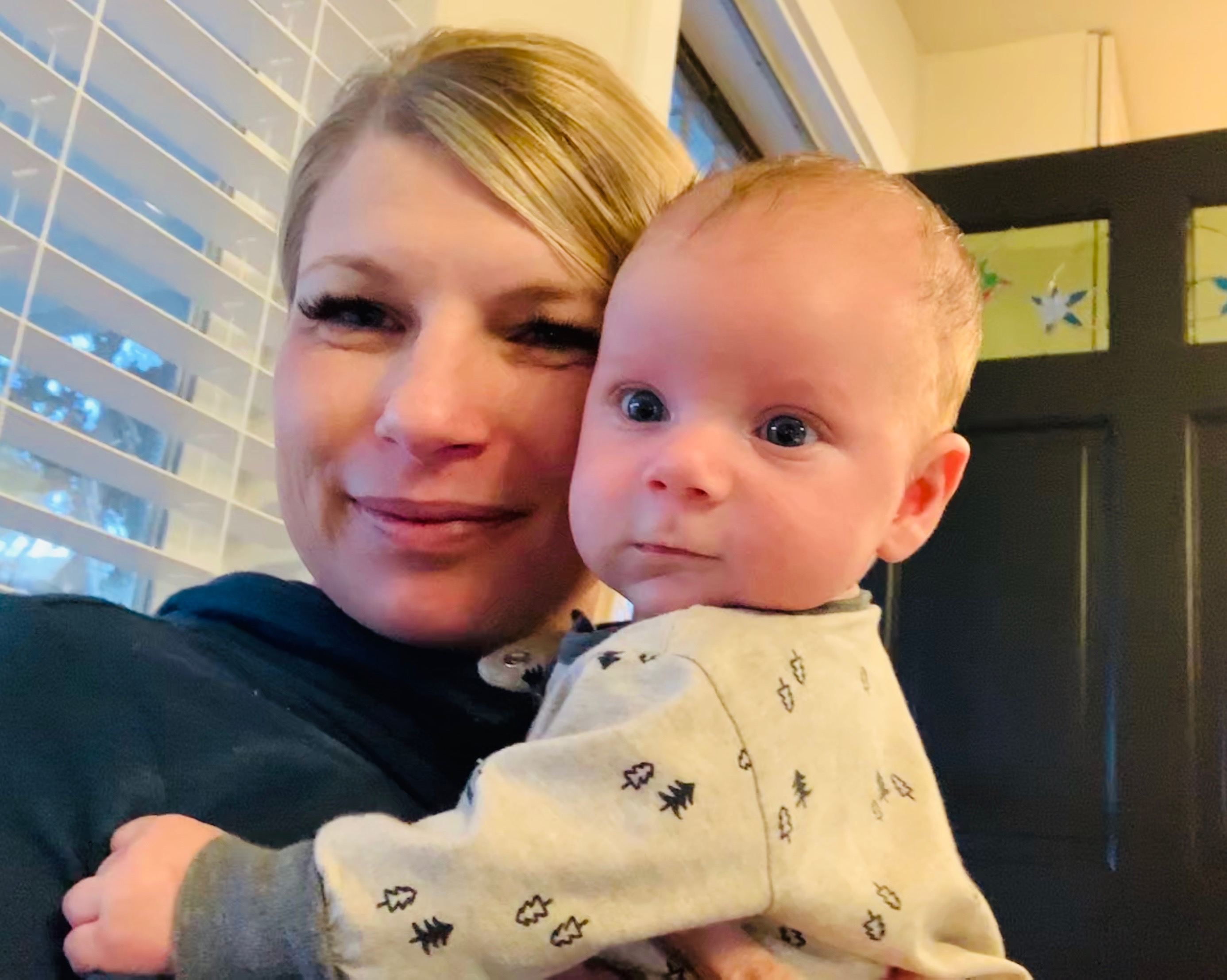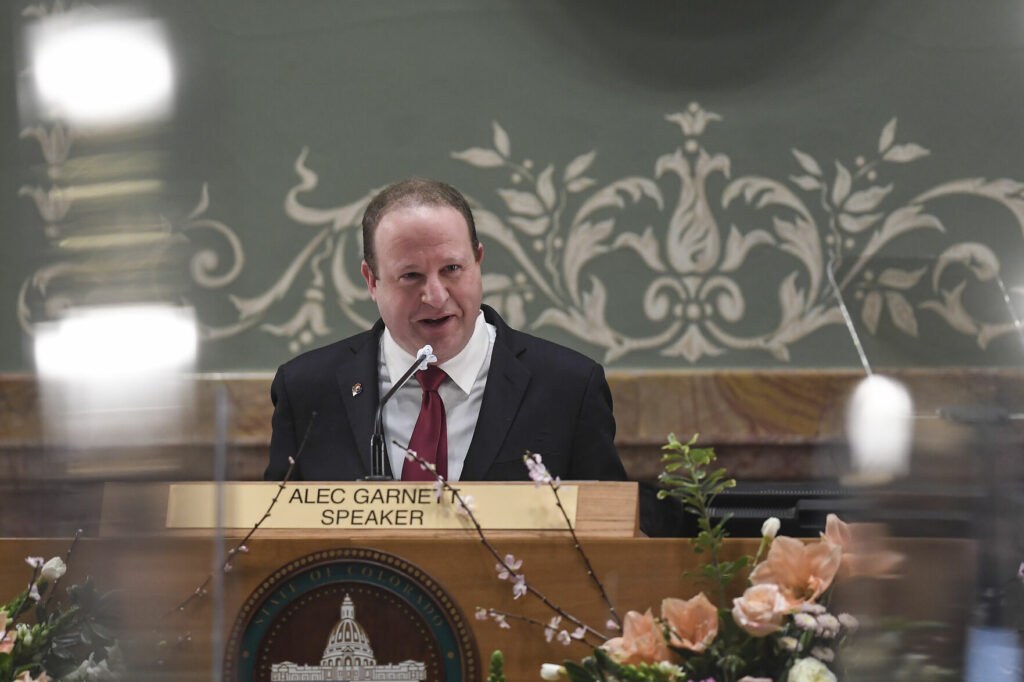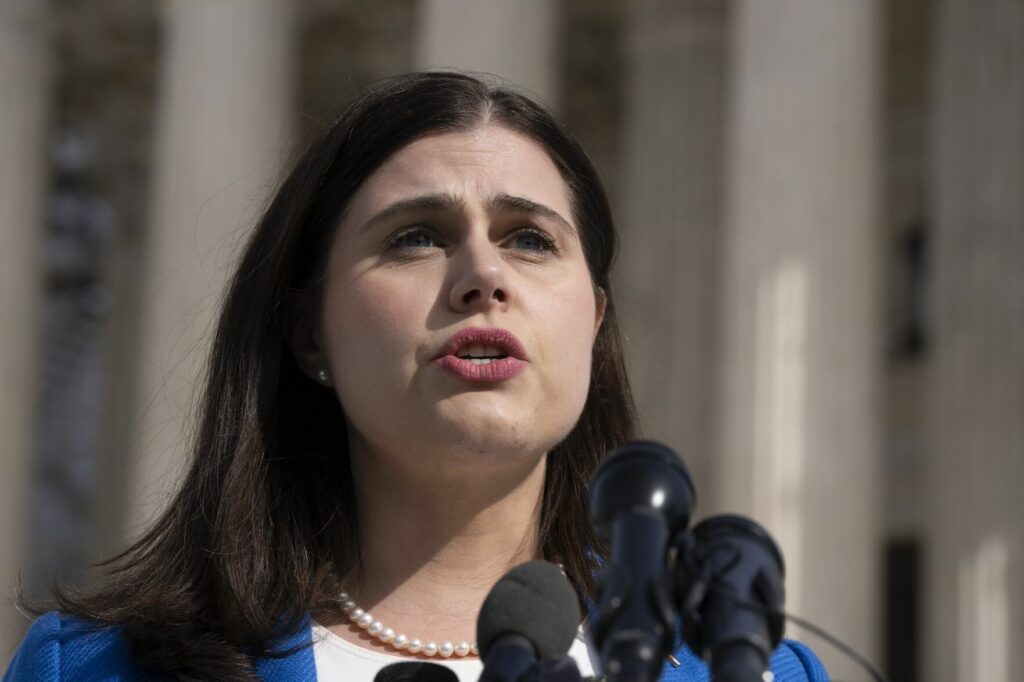Senate approves bill to grant paid family leave to lawmakers

The Colorado Senate in a nearly unanimous vote on Thursday approved a bill to grant lawmakers up to 12 weeks of paid parental leave.
If adopted by the House and signed into law by the governor, Colorado would become the first state in the nation with a paid leave law for lawmakers.
Senate Bill 184, which cleared the Senate on a on a 32-2 vote, would modify the existing statute regarding compensation for lawmakers when they are absent.
Current law allows a member of the General Assembly to be gone for long-term illness without consequence. That law has been applied twice in the last two years to lawmakers who gave birth.
About a dozen current lawmakers have added babies to their families in the last six years, including Senate President Steve Fenberg, House Speaker Alec Garnett, House Majority Leader Daneya Esgar of Pueblo, two Democratic senators, and six other members of the House on both sides of the aisle.
The existing statute deals with compensation. If a lawmaker is gone for one-third or more of the session – a minimum of 40 days – that portion of their pay would be forfeited. However, that can be waived by the Speaker of the House or Senate President, and that’s what happened for long-term absences for both Sen. Brittany Pettersen, D-Lakewood, who took a leave during the 2020 session, and Sen. Jessie Danielson, D-Wheat Ridge, who did the same this session. Pettersen was excused for 36 days out of the 84-day session, which got shortened during the pandemic. Danielson, meanwhile, was excused for 53 out of the first 54 days this year.
SB 184 removes long-term illness from one portion of the statute and replaces it with absence “for any purpose.” But what makes SB 184 unique is that it allows lawmakers to take a maximum of 12 weeks of parental leave, plus an additional four weeks for a serious health condition related to pregnancy or childbirth complications, and to do so during the session. The leave would also apply to lawmakers who have extensive duties outside of session, such as leadership.
Twelve weeks of paid leave during the legislature equates to 84 days, which would be more than two-thirds of the 120-day session.
That raised questions for Senate Minority Leader Sen. Chris Holbert, R-Douglas County, who said he would support the bill during second reading debate Wednesday.
If a member takes leave, that lawmaker might be at risk for what their constituents think, Holbert explained. “Do their constituents support that decision, and for how long?” he asked.
Holbert noted that the Senate in the last few years has been separated by only a one-vote majority, and that also is a consideration. It’s not a one-party discussion, and the likelihood of close majorities in the future exists, he said. Under that scenario, the lawmaker might do what’s best for the family and that resigning might be an option, adding “the accountability is to the constituents, not to the other members of the chamber,” he said.
“Times, they are a changin’,” said Sen. Cleave Simpson, R-Alamosa, in explaining his support for the bill on Thursday. “It’s not all bad.”
Sen. Brittany Pettersen, D-Lakewood, said the bill came about after she gave birth in the early weeks of the 2020 session. The current statute only refers to long-term illness, which Pettersen called “outdated,” also calling it a law that made the legislature less inclusive to women in their childbearing years.
But the bill could incentivize lawmakers to take leave and not represent their district, said Sen. Jerry Sonnenberg, R-Sterling. “I am old school, and I struggle using taxpayer dollars to pay for not working,” and indicated that 180,000 constituents are not being represented while someone is on leave.
That raised the hackles of a number of Democratic lawmakers, including Sen. Rhonda Fields, D-Aurora. With the pay lawmakers makes, that’s not an incentive, Fields said. “Be careful about how your constituents are watching you when you cast this vote,” as a message to women who may be thinking of running for office. “Someone is telling you if you do give birth and you serve in this body…you’re out of luck. Don’t put women in the situation of having a child or working in this building.”
If the state wants a robust democracy, all voices must be at the table, countered Sen. Faith Winter, D-Westminster. To say parents who take leave aren’t representing their districts is wrong, Winter indicated, stating that’s exactly who should be in the legislature. “We do a better job when we mirror our constituency.”
“I doubt anyone would take leave to game the system,” added Sen. Kevin Priola, R-Henderson.
Sen. Jim Smallwood, R-Parker, said he originally planned to vote “no,” but said the state should want be an employer of choice, including for lawmakers. Sometimes being good fiduciaries of taxpayer money means attracting the best and brightest, Smallwood said.
Sonnenberg and Sen. Larry Liston, R-Colorado Springs, were the only “no” votes.
The bill was amended to remove the safety clause, which would allow the law to go into effect upon the governor’s signature, and replaced it with a petition clause, which would delay its implementation for 90 days to allow for a ballot initiative challenge.














